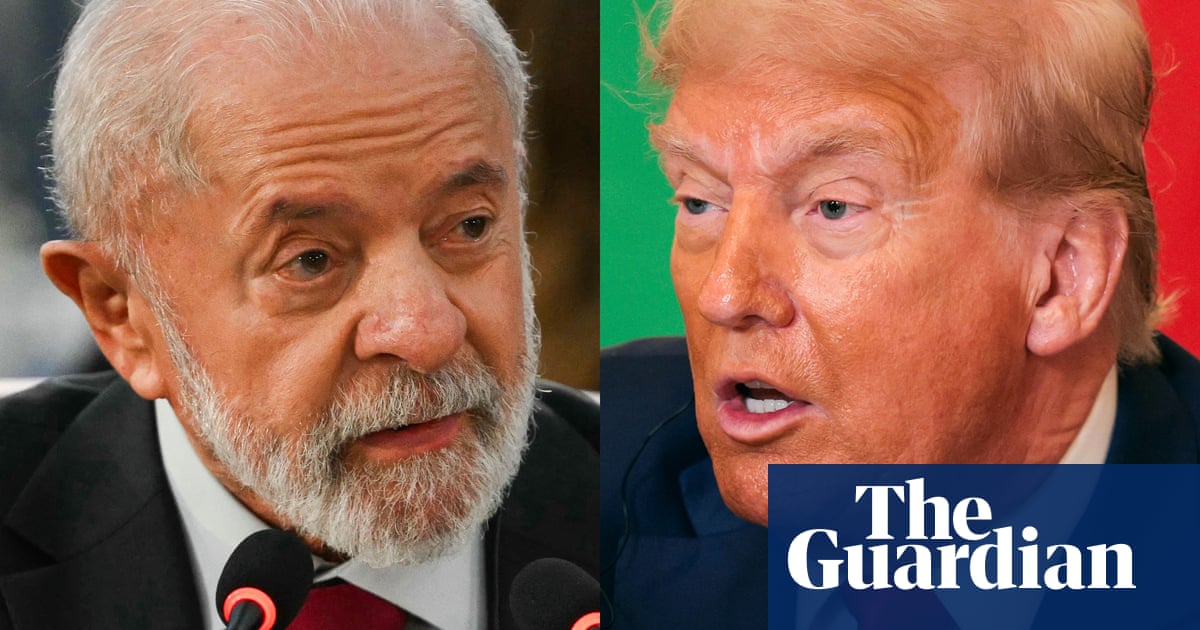A Tariff That Shook Brazil: Analyzing Trump’s Bold Move Against a Major Trade Partner
In a dramatic turn that many see as a direct assault on Brazil’s sovereignty, former U.S. President Donald Trump announced an astounding 50% tariff on goods imported from Brazil, effective August 1. This unexpected decision has set off ripples of concern across Brazilian political and business landscapes, especially since the U.S. has enjoyed a trade surplus with Brazil for 17 years.
Background on the Tariff Announcement
The severity of the announced tariff notably exceeded previous penalties imposed this month, signaling a shift in U.S.-Brazil relations. The letter sent to Brazilian President Luiz Inácio Lula da Silva starkly contrasted with more diplomatic communications typically extended to other countries. It bore Trump’s characteristic intensity, painting the new tariff as punishment for Brazil’s handling of legal actions against former President Jair Bolsonaro, who faces serious allegations related to an attempted coup following his electoral defeat to Lula in 2022.
The Context of Trump’s Defense of Bolsonaro
On the cusp of the tariff announcement, Trump passionately defended Bolsonaro, labeling the former president as a victim of a "witch-hunt." The rhetoric underscored Bolsonaro’s perception as the “Trump of the Tropics,” and provoked Brazil to summon the U.S. envoy to express their discontent with such overt American interference. Trump’s accusations extended to Brazil’s judiciary, claiming that its supreme court had sanctioned "censorship orders" against American tech companies, further escalating tensions between the two nations.
Brazilian Reactions: Surprise and Concern
The news of the 50% tariff took many within Brazil by surprise, especially given the U.S.’s long-standing trade surplus with the country. Nevertheless, Eduardo Bolsonaro, one of Jair Bolsonaro’s sons, quickly seized the moment, taking credit for what he termed a “success” attributed to the ongoing dialogue he maintained with the Trump administration. Such assertions, however, have not sat well with business leaders in sectors like coffee, meat, textiles, plastics, and footwear—industries that will likely bear the brunt of these tariffs.
The Ripple Effects on Business and Politics
Despite Eduardo Bolsonaro’s claims, many business leaders are grappling with the potential fallout of these tariffs. Their usual support for Bolsonaro might be undermined, as they confront escalating costs and challenges in maintaining competitive pricing. Reports suggest that Bolsonaro’s inner circle is scrambling to mitigate any adverse effects on his political prospects while trying to shield the former president from political backlash.
The Potential for a Political Backfire
There’s a growing sentiment among political analysts that Trump’s bold move could backfire on Bolsonaro. Sociologist Celso Rocha de Barros highlighted the risks of Trump trying to influence Bolsonaro’s trial—a legal battle that may further complicate his situation. For Luiz Inácio Lula da Silva, this turmoil presents a golden opportunity to bolster his own popularity. In an era where political narratives are crucial, Lula has harnessed the phrase "sovereign Brazil" in his re-election campaign, signaling resilience against external pressures.
Lula’s Opportunity Amid Crisis
As political tensions rise, Lula seems to be strategically positioning himself to gain popularity amidst these controversies. Drawing parallels with Canadian politics, where the Liberal Party gained ground after repeated U.S. criticisms, Lula is leveraging the current climate to appear as a defender of Brazilian independence. The president intends to turn Trump’s tariffs into a rallying point, posing himself as a bastion of national pride in defiance of foreign imposition.
Economic Implications of Unexpected Tariffs
The recently announced tariffs don’t just represent a political stance; they carry substantial economic weight. They threaten to impose a new tax burden on Brazilian consumers and businesses, potentially igniting inflation and disrupting trade flows. Critics argue that this could exacerbate challenges for the Brazilian people, impacting daily life while aiding the U.S. in reducing its fiscal deficit.
Conclusion: An Unfolding Drama in U.S.-Brazil Relations
With Brazil assessing its next steps—including potential retaliation—this unfolding situation illustrates just how intricately linked international trade and domestic politics can be. As both nations navigate this escalating tension, the outcomes will likely shape the political landscape for years to come. The eyes of the world remain keenly focused on Brazil and its response to this economic challenge, underscoring the delicate balance between national sovereignty and global economics.


